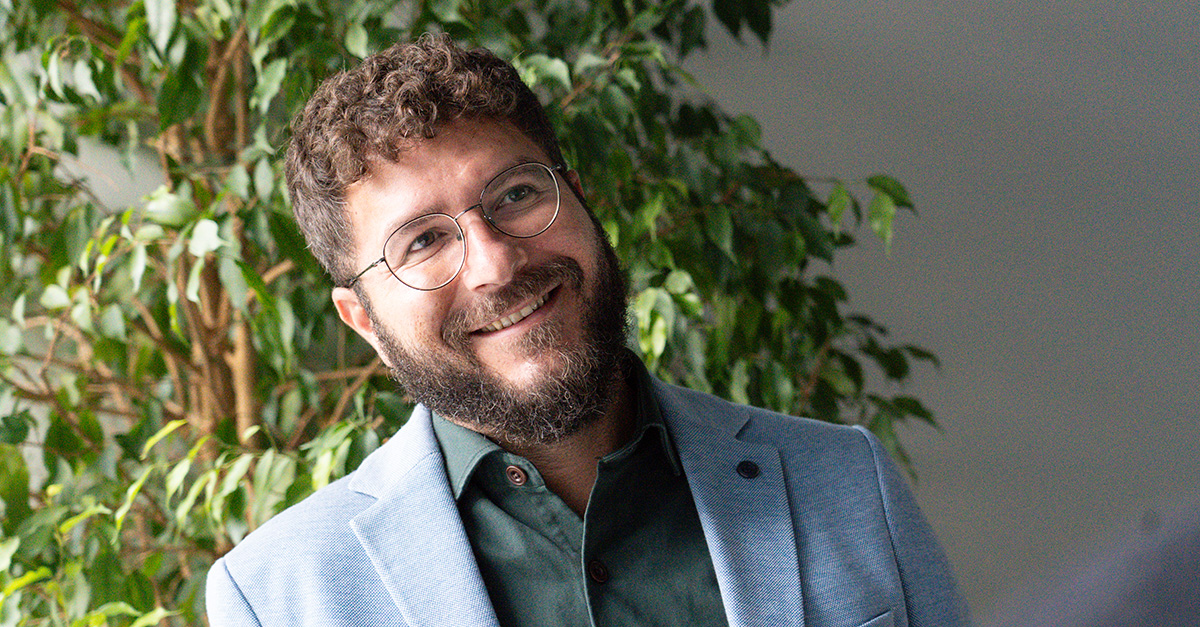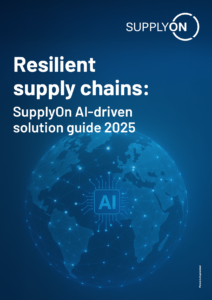
Job Profile and Responsibilities of a Product Manager
Get an overview of the Product Manager job profile, learn about their responsibilities, and find job opportunities as a Product Manager in the Supply Chain industry in Munich.
What does a Product Manager do?
- A Product Manager works strategically. They develop new product ideas and concepts, validate them through market research and customer feedback, and ensure they are aligned with customer needs.
- The Product Manager closely collaborates with various teams, such as consulting, sales, and Product Owners and their agile teams, to ensure that the products are not only technically sound but also market-ready and user-oriented.
- By applying agile methods and working with the Scaled Agile Framework (SAFe), the Product Manager remains flexible and can quickly respond to market changes.
- They drive digital transformation, analyze market trends, and derive critical strategic decisions. Additionally, they interact directly with customers to understand their requirements and provide them with the best possible solutions. The Product Manager holds a highly responsible position and is a key driver of innovation and success.

Responsibilities of a Product Manager
As a Product Manager, your role is versatile and demanding, as you are the central point for developing and implementing innovative product solutions. You work in a dynamic environment characterized by teamwork, creative ideas, and agile methods. Here are the specific responsibilities you can expect in this exciting position:
What skills does a Product Manager need?
What skills and qualifications are required to be a successful Product Manager? Here are the key requirements you should bring to excel in your role:
- Digitization Expertise: You have experience in driving digital transformation within business processes.
- Agile Methods: You are proficient in agile methods of software and product development, including feature prioritization and user journey mapping.
- Problem-solving Skills: You can structure complex problems and translate them into concrete software requirements.
- Stakeholder Management: You enjoy interacting with customers and colleagues and handle intellectual challenges with ease.
- Analytical Competence: You can analyze quantitative data and derive well-founded recommendations for action.
What does a day in the life of a Product Manager look like?
A Product Manager’s day is varied and dynamic. The day often starts with a daily stand-up meeting to discuss the current status of projects and set priorities for the day.
After that, work on developing new product ideas and concepts, with market research and customer feedback play a crucial role. A significant part of the day is also dedicated to collaborating with Product Owners.
In the afternoon, meetings with customers or internal stakeholders often take place to clarify requirements and make strategic decisions.
In between, there is time to analyze market trends and plan future steps.
The Product Manager works in an agile environment, meaning they can respond flexibly to changes and are always focused on finding innovative and efficient solutions.
Career opportunities and further development for Product Managers
As a Product Manager, you will find numerous career opportunities in a dynamic and growing environment.
The role offers you the chance to continuously expand your skills in product development, strategic management, and customer communication.
In an environment characterized by innovation and digital transformation, you can advance your career in a targeted manner.
- Diverse Development Paths: As a Product Manager, you have the opportunity to develop in various directions. Whether you want to specialize in the technical side, such as product architecture, aspire to a leadership position, or deepen your knowledge in strategic product management – the possibilities are vast.
- Further Development Opportunities: To stay up-to-date with the latest technology and best practices, extensive continuing education opportunities are available to you. These include training in agile methods, certifications in product management, and specialized workshops and seminars on the latest trends in digital transformation and supply chain management.
- Networking and Mentoring: Networking with other professionals and leaders is an essential part of your professional development. Through networks, conferences, and internal mentoring programs, you can make valuable connections and learn from the experiences of others.
- International Environment: Working in an international environment not only provides cultural insights but also the opportunity to deepen your language skills and collaborate on global projects with diverse teams.
How does the role of a Product Manager differ from other job profiles?
What is the difference between the role of a Product Manager and other roles in the product development process? Learn about the differences and similarities.
Your Role as a Product Manager at SupplyOn
In your role as a Product Manager at SupplyOn, you hold a responsible position and actively shape the digital future of global supply chains.
As a Product Manager, you lead the ideation and development of new supply chain solutions that make our supplier relationship management processes more efficient and effective.
Your goal is to create innovative products that offer real value to our renowned customers in the supply chain industry.
Your purpose in your job as a Product Manager: You enable supply chain partners to collaborate smarter and help build a better, future-oriented, and more sustainable global supply chain ecosystem.
Get to know Product Manager at SupplyOn
Would you like to learn more about the application process for the Product Manager role at SupplyOn, what motivated Product Managers to join us, and why SupplyOn is the right employer for them? These colleagues will answer your questions:



FAQ for your Product Manager job at SupplyOn

FAQ about Choosing a Career as a Product Manager
Are you considering training, studying, or starting a career to become a Product Manager? Here you can find frequently asked questions and our answers:
Further information for your Product Manager Job in Munich
Foster Engagement
Read in the interview how you can make meetings interactive and engaging as a Product Manager.
Feedback as a career catalyst
Learn how you can leverage feedback for your career development as a Product Manager at SupplyOn.
Career development as a Product Manager
Get insights from Product Manager Mirjam on career development into a leadership role as a Product Manager.
Our leadership culture
aking the lead as a Product Manager? Learn from our colleagues’ experience reports how the leadership culture at SupplyOn is practiced.

